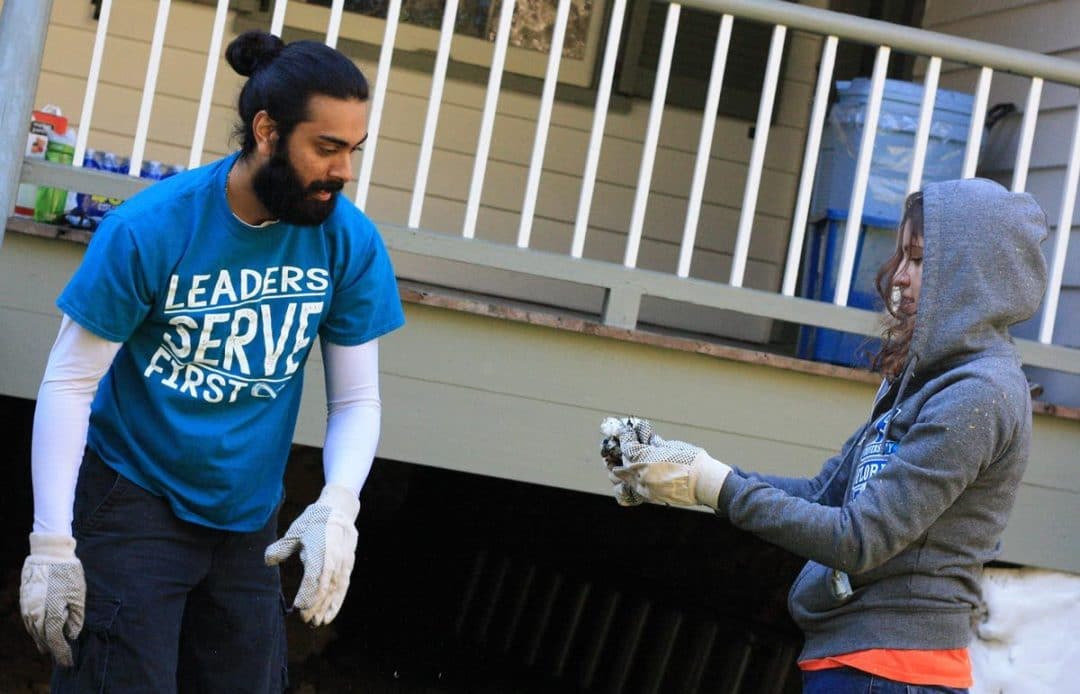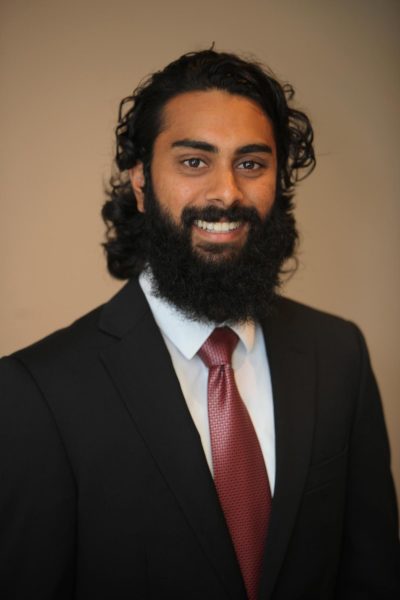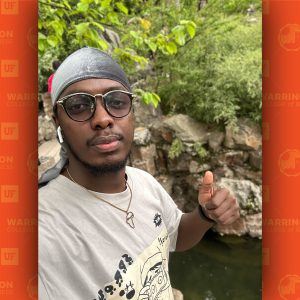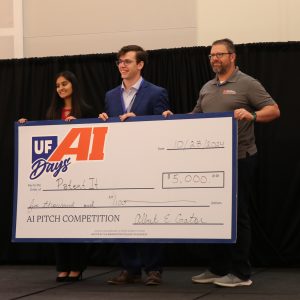Student Spotlight: Roshan Patel
Roshan Patel’s commitment to servant leadership began as a UF undergraduate.
That commitment continues as he pursues his UF MBA, and he hopes this weekend’s Gator Global Initiative will inspire more Gators to get involved in their communities.
Learn more about Roshan, the Gator Global Initiative, and how he plans on leveraging his UF MBA into a rewarding career.
Name: Roshan Patel
Hometown: Port Orange, Florida
Degree Program: Full-Time Two-Year MBA
Student Organizations/Activities (include leadership positions, if applicable):
- MBA Association Community Outreach Chair
- MBA Association Etiquette Dinner Chair
- Graduate Assistant at the UF Brown Center for Leadership and Service
- Committee Chair/Member for the Gator Global Initiative
Why did you decide to pursue an MBA?
New opportunities. After an undergrad in Chemical Engineering and a few internships, I knew that I did not want to have a technical job as an engineer, and also did not want to become a medical doctor (after being Pre-Med for three and a half years and shadowing many doctors). However, I still wanted to utilize the process-based/logical decision-making and analytical skills that I learned in engineering. I knew I would provide value by using my technical understanding to drive business decisions and an MBA was the first step to finding such a role.
Why did you choose UF MBA at the Hough Graduate School of Business?
The UF MBA’s boutique program sold me. I wanted to take advantage of the resources available and having a program where the advisors and professors knew me by first name was important. My classes and career advice are specific to my interests and ambitions, which is something you cannot find everywhere. Additionally, knowing I would have a close group of classmates made me more comfortable going through a two-year program.
How has your time at UF MBA impacted you thus far?
The program has really forced me (in a good way) to become more comfortable in networking and interview situations. Being a very introverted person, the thought of a networking session was tiring. But being in this supportive, close-knit environment with constructive coaching throughout the program, has allowed me to become comfortable and confident before and during such events (though I still get very tired as soon as I get home).
What is the Gator Global Initiative (GGI), and why is it important?
The Gator Global Initiative is an event that helps participants find, or deepen their understanding of, a social issue they are passionate about and provides a set of skills essential to creating a positive, sustainable change in their communities. We do this by providing interactive panel sessions that tackle issues like human rights, economic development, educational inequalities, and health disparities.
This conference is important because it provides an environment where participants can understand–firsthand–what it means to work in a social issue. This is not a theory-based conference. Our mission is to turn passion into action.
Why did you want to be personally involved in GGI?
I chose GGI because it sounded like it would provide me with an opportunity to explore social issues that I was not knowledgeable about and reflect on what my own passions were/are. Upon starting the MBA program, I returned to The Brown Center for Leadership & Service as a Graduate Assistant—I joined BCLS during my senior year—and became responsible for the entire event. At the end of that event, a student came told me he had found something he was passionate about and eventually landed an internship creating social change. At that moment, I knew I wanted to stay involved with GGI to continue impacting the lives of participants and am now helping plan this year’s event.
What inspired this year’s GGI’s theme, “Creative Minds Igniting Social Change”?
Through studying Chemical Engineering, I gained a strong appreciation for the power of arts and the process of creativity. As an undergrad, I took an interdisciplinary course between the College of Engineering and the College of the Arts. During this class, my team and I created a machine that analyzed people’s voices in real time and converted their voice into a piece of art, putting smiles on the faces of everyone that interacted with our art. I reflected on that class while planning GGI. I realized I could use my engineering to create art that brought joy so why not discover how art was being used to create social change?
What is the most challenging aspect of organizing this event?
The most challenging part is always getting the word out to students. There are so many impactful events occurring during the weekends, especially during away football games. We have experimented over the years to find the best schedule and have used feedback to create a powerful event—and we know word of mouth is going to be our best marketing tool. We already hit our attendance goal and are excited to see what the final count will be!
What actions do you hope students will take after attending GGI?
Our speakers are willing to help participants beyond the conference, and we create small groups to allow for networking opportunities. This year, we have added a tabling session where student organizations that focus in one of the social issues we discuss can interact with participants. The idea is to expose participants to opportunities where they can join an organization, start their own organization, compete in social entrepreneurship competitions, or take any other action where the participant is engaged and creating positive, sustainable change.
You’ve been involved with many servant leadership initiatives here at UF. What do you get out of your involvement with these projects?
We develop a curriculum and process to build leaders that represent, and uphold the values of, the Gator Nation. If there comes a day in the future that a former participant tells me that their lives were positively impacted by an initiative and that they have done the same for others, I know my work will have been successful.
What has been your favorite service leadership activity to participate in and why?
The Servant Leader Roundtables (SLRT) are always my favorite. In brief, SLRT brings together leaders of UF student organizations that focus in community service to discuss the state of community service at UF and the organizations involved. The best discussion is when we ask the organizations about obstacles they are facing and have the entire group discuss solutions. In three years, we have never had an organization walk out without at least one viable solution to their obstacle. Observing such extensive collaboration from students who care so deeply is inspiring, and is what makes UF great.
What career path do you envision after completing the UF MBA program?
I want a career that allows me to be challenged and make significant positive impacts on the lives of others. This type of career would be fulfilling which is most important to me. I am focusing right now on Healthcare Informatics and improving how hospital systems are run, with the ultimate goal of improving the quality of patient care. I do also enjoy the start-up work culture so I may start venturing out as well in the near future.
Tell us something about yourself that most people don’t know.
Most people don’t know that I still hold on tight to my childhood dream of becoming an astronaut and going to space. As much as I love Earth, I would also love to see what else exists in the universe. I am always ready for a new adventure, and what better adventure could there be!
How do you spend your time when not studying?
Besides working at BCLS, I work part-time at Springshot, a San Francisco-based startup I interned with this past summer. In addition to starting a non-profit in my hometown, I am training for my first half-marathon next week (wish me luck)! I also love to cook and eat, and have been taking weekend road trips to hike and explore new areas and to stimulate my creative side through nature photography.
If you had a million dollars, how would you spend it?
I would first pay off my student loans. I would also take a trip to experience the Northern Lights and the Milky Way and get a skydiving certification. The rest would be donated to a non-profit I started in my hometown, My City My Pride. I am trying to take what I have learned with my time at UF and BCLS, and implement that into my community. The mission is to engage more K-12 students in selfless service and teach them, through doing, the power of selfless service. There is no reason volunteering has to be something done just to apply for colleges or to put on a résumé because the experiences you gain from service are equally as valuable as the education from a classroom, and can teach you more about yourself than any textbook can.





